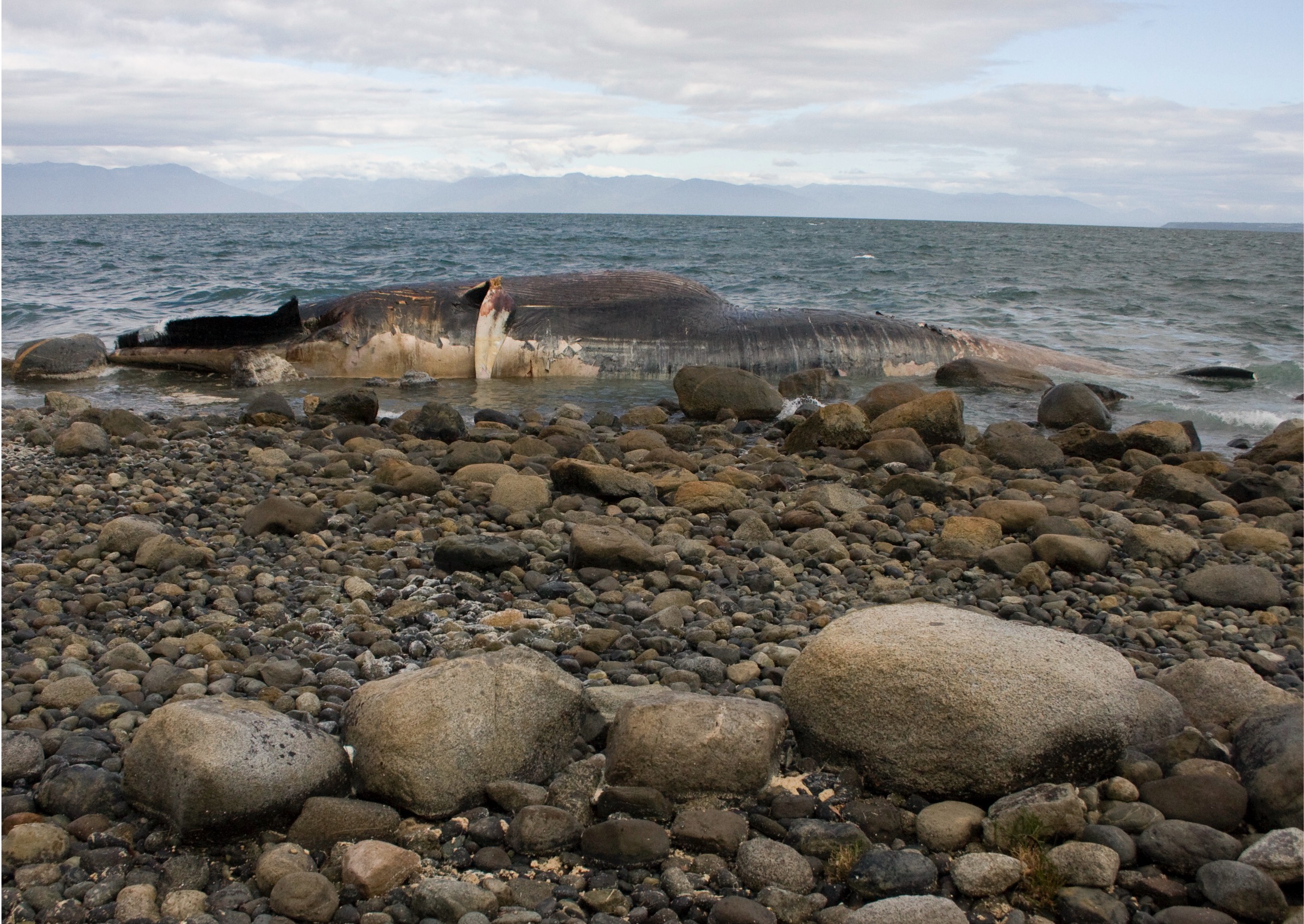The Scientific Committee of the International Whaling Commission, the most important global cetacean research body, expressed its “concern about the possible decline of up to 36% in the blue whale population on their feeding grounds in southern Chile (Chiloé Island) in the last 14 years”.
Saturday, June 8, 2024 (CCC/Ecoceanos News) – Between late April and early May, hundreds of cetacean research scientists gathered in Bled, Slovenia for the 69th meeting of the Scientific Committee of the International Whaling Commission (IWC). Among the many issues discussed, the situation of the Chilean blue whale population raised concern among researchers. According to the meeting report, “Preliminary estimates suggest that the population in the southern zone (of Chile) experienced a significant decline of about 3% per year between 2004 and 2017”, or 36% in the last 14 years.
The blue whale (Balaenoptera musculus) is the largest animal that has ever lived on the planet, reaching lengths of over 30 meters. Centuries of commercial whaling reduced their populations by more than 95% and despite being protected since 1966, its conservation status remains Endangered. The blue whale population in Chilean waters has unique characteristics, which is why it is known as the Chilean blue whale and its population has been estimated at around 600 individuals.
Regarding the results presented at the IWC Scientific Committee, Elsa Cabrera, executive director of the Cetacean Conservation Center, said that “this concerning news could have been avoided if the authorities complied with their commitments regarding whale conservation”. The environmentalist recalled that Chilean jurisdictional waters have elements to strengthen the protection of cetaceans through the law 20.293, known as national whale sanctuary. She added that “it seems that the authorities consider that the existence of these elements on paper is enough to guarantee the conservation of these marine mammals. However, the report of the IWC Scientific Committee shows the opposite. Consequently, we reiterate our call to Gabriel Boric’s government to urgently implement effective measures to stop the loss of blue whales in Chile”.
Conservation of whales in Chilean waters: Deaf ears and empty words
In November 2023, the Cetacean Conservation Center and Centro Ecoceanos delivered a letter to President Boric, in reference to the death by gillnetting and collision of a southern right whale calf (Eubalaena australis) in June of the same year in Melinka (Aysén), southern Chile.
The letter, which was delivered at the government palace and endorsed by more than 85 non-governmental organizations (NGOs) from 22 countries, includes an urgent call to the government to implement measures to prevent whale mortality from direct interactions with industrial salmon farming operations and industrial and artisanal fishing activities in the south of Chile. In addition, the NGOs proposed specific and immediate actions to protect endangered whale populations. These include reducing vessels speed in whale watching areas and seasons, regulating fishing and aquaculture practices to avoid entanglements, and eliminating direct operations associated with industrial salmon farming centers within coastal areas of national parks, marine protected areas and marine reserves.
“While we are still waiting for an adequate response from President Boric, the international scientific community is witnessing the continous lack of political will and pro-business arrangements of current and previous governments. This negligence is driving Chilean blue whale and Chile-Peru southern right whale populations to their progressive disappearance,” said Juan Carlos Cardenas, director of Centro Ecoceanos.
Cárdenas recalled that the only response received to the letter sent on behalf of millions of people around the world was an “administrative note, which did not provided any space for dialogue with national and international NGOs, independent scientists and the local and regional coastal communities represented in the message to the president”.
The double face of the government environmental/extractivism policies
While emblematic species such as the Chilean blue whale are moving towards extinction due to the absence of effective measures for their protection in Chilean waters, the authorities of Boric’s government, including his environment minister, Maisa Rojas, held ten secret meetings earlier this year, in violation of its own transparency law, with a select group of owners and representatives of business groups and transnational fishing and aquaculture exporting companies. Among them were businessmen from the intensive salmon farming mega-industry that has been destructively operating for three decades in Chilean Patagonia, the same area where the Chilean blue whale population has declined by 36% in the last 14 years and where two human-induced fatalities of southern right whales have been recorded in the last 8 years.
Cabrera pointed out that this reprehensible and irresponsible behaviour by those who run the country “could lead us to witness the first case of extinction of a whale population in the waters of the Southeast Pacific Ocean during the 21st century.”
For Cárdenas, “these agreements and commitments that are usually made by ministers and the fishing and salmon industry, which in practice act as de facto co-legislators – without the knowledge or participation of the public and the scientific community – seriously threatens the stability of the environment and the vulnerable marine biodiversity, especially cetacean populations at risk of extinction. This is completely contrary to the supposed implementation of an international “blue policy” and Chile’s president self-described “first ecological government.”
Source: Centro de Conservación Cetacea and Centro Ecoceanos



